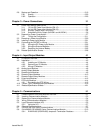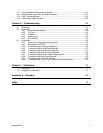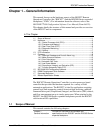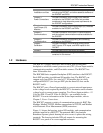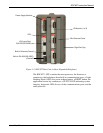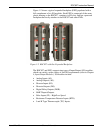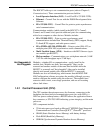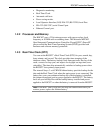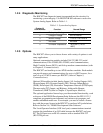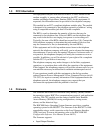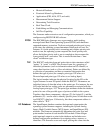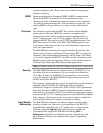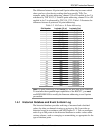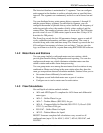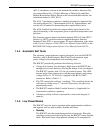
ROC827 Instruction Manual
Issued Mar-06 General Information 1-6
Diagnostic monitoring.
Real-Time Clock.
Automatic self-tests.
Power saving modes.
Local Operator Interface (LOI) EIA-232 (RS-232D) Local Port.
EIA-232 (RS-232C) serial Comm2 port.
Ethernet Comm1 port.
1.2.2 Processor and Memory
The ROC827 uses a 32-bit microprocessor with processor bus clock
frequency at 50 MHz with a watchdog timer. The Motorola MPC862
Quad Integrated Communications Controller (PowerQUICC) PowerPC
processor and the Real-Time Operating System (RTOS) provide both
hardware and software memory protection.
1.2.3 Real-Time Clock (RTC)
You can set the ROC827’s Real-Time Clock (RTC) for year, month, day,
hour, minute, and second. The clock provides time stamping of the
database values. The battery-backed clock firmware tracks the day of the
week, corrects for leap year, and adjusts for daylight savings time (user-
selectable). The time chip automatically switches to backup power when
the ROC827 loses primary input power.
The internal Sanyo 3-volt CR2430 lithium battery provides backup for the
data and the Real-Time Clock when the main power is not connected. The
battery has a one-year minimum backup life with the battery is installed,
the jumper disengaged, and no power applied to the ROC827. The battery
has a ten-year backup life with the backup battery installed and power
applied to the ROC827 or when the battery is removed from the ROC827.
Note: If the Real-Time Clock does not keep the current time when you
remove power, replace the lithium battery.



